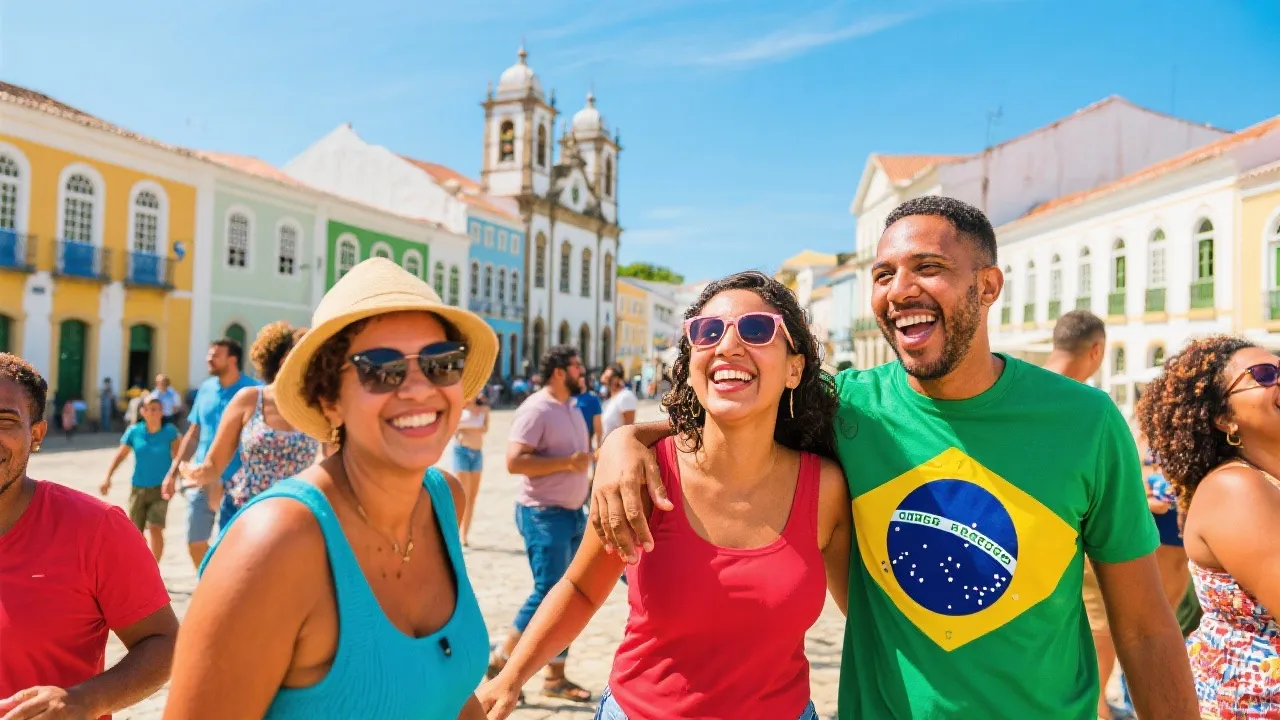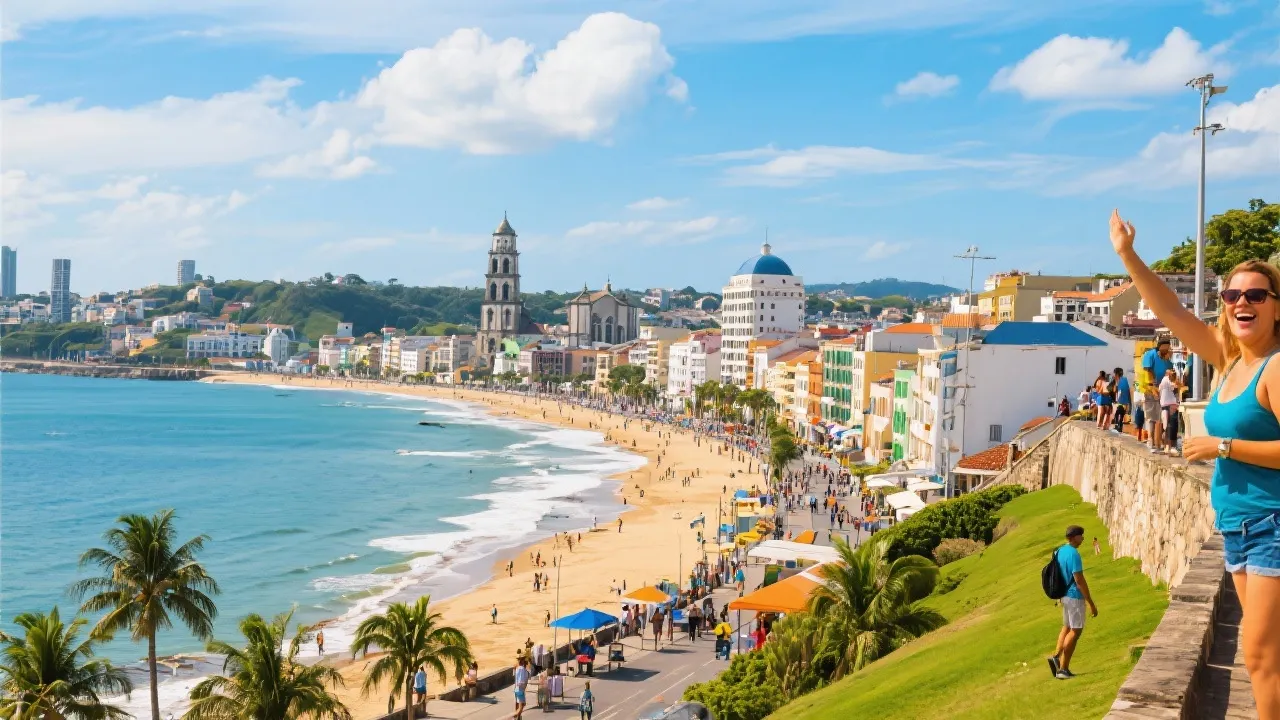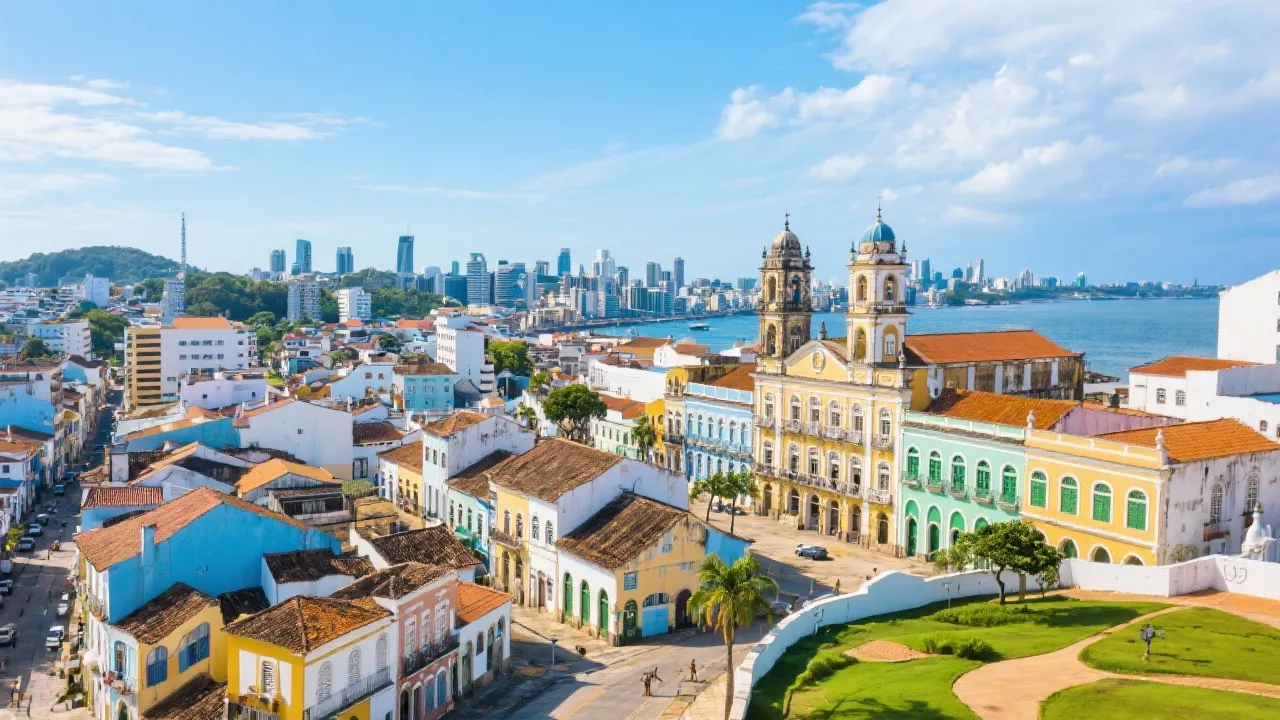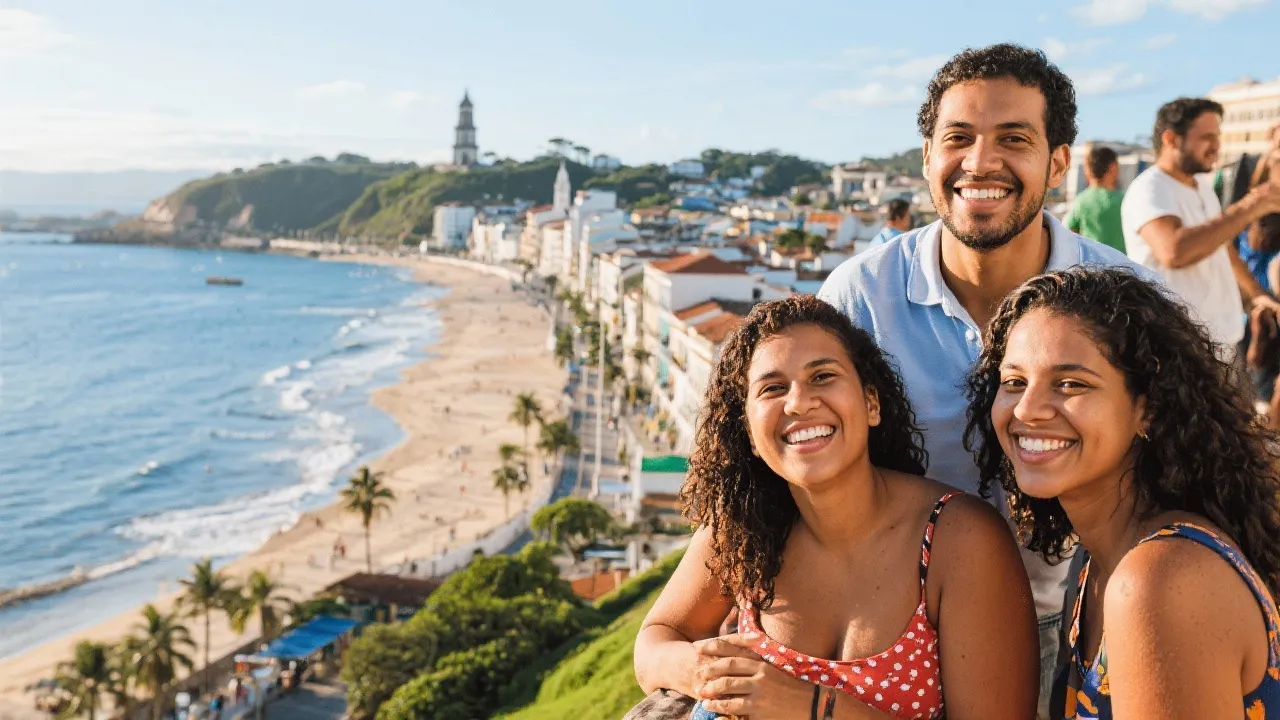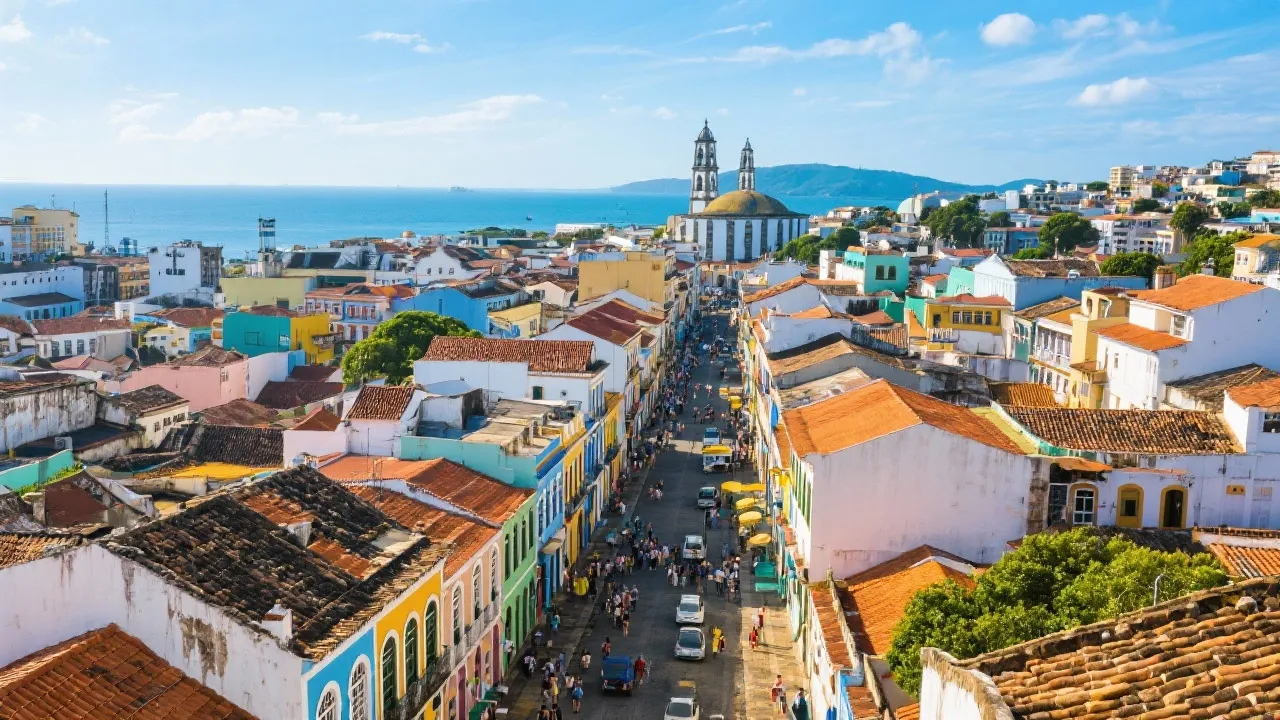Experiencing Sorridente Salvador's Charm
Sorridente Salvador offers a unique blend of cultural richness and natural beauty. Known for its historic sites and vibrant Afro-Brazilian culture, Salvador welcomes visitors with open arms. The city is a dynamic tourism hub, featuring notable landmarks, stunning beaches, and a lively arts scene, all contributing to its reputation as a must-visit destination. Salvador's nickname, "Sorridente," encapsulates the city's welcoming and joyful spirit.
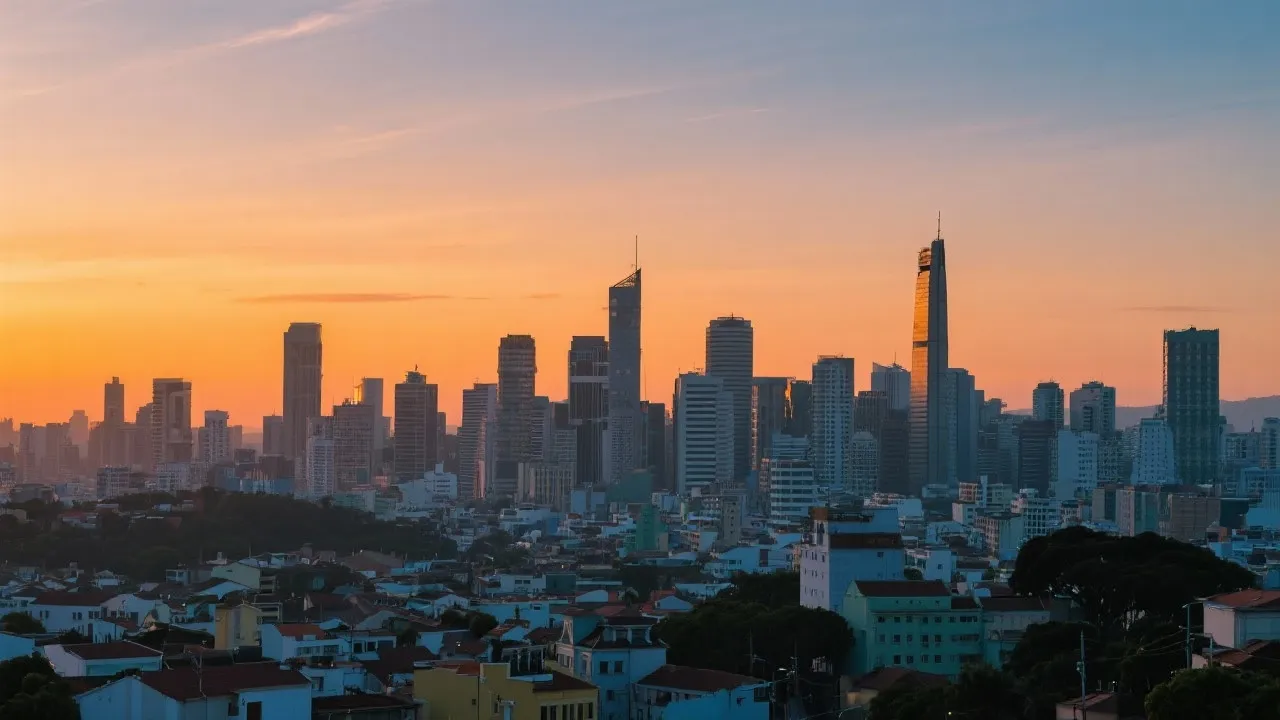
Exploring the Vibrant City of Sorridente Salvador
Sorridente Salvador is a beacon of cultural diversity and mesmerizing landscapes. As the capital of Brazil's Bahia state, Salvador is renowned for its historical significance and lively Afro-Brazilian heritage. This article delves into what makes this city a notable destination, emphasizing its unique charm and the experiences it offers to visitors. With centuries of history and a plethora of cultural expressions, Salvador stands out as an essential location for those looking to immerse themselves in Brazil’s rich traditions and customs.
The Historical and Cultural Landscape
Walking through Salvador is like stepping back in time. The city is filled with historical architecture, including beautifully preserved colonial buildings in the Pelourinho area. Classified as a UNESCO World Heritage site, Pelourinho is a testament to Salvador's rich history. You can explore vibrant streets where music, dance, and art are omnipresent, reflecting the city's diverse cultural tapestry. Streets lined with brightly colored houses offer an enchanting backdrop, but they also echo stories from the past, from colonial dominance to independence movements.
Pelourinho's history dates back to the 16th century when the Portuguese established their foothold in Brazil. The distinctive facades of the buildings, largely constructed in the Baroque style, provide a visual feast that tells tales of what Salvador was once like: alive with commerce, cultural exchange, and conflict. When visiting, make sure to stop at the Igreja de São Francisco, a baroque church with gilded interiors, or the Museu de Arte da Bahia, which houses impressive collections reflecting the artistic movements of the region.
The cultural aspects extend beyond historic sites. Salvador is a city where every corner comes alive with music, particularly samba and axé, a genre developed in Bahia that combines influences from African rhythms, folklore, and other Brazilian musical styles. Regular performances in public squares and during festivals emphasize the importance of music in Bahian culture, illustrating how it dances hand-in-hand with the city's identity.
The Allure of Salvador's Beaches
No visit to Sorridente Salvador is complete without experiencing its stunning beaches. From the bustling Porto da Barra to the serene Praia do Flamengo, there's a slice of paradise for every beachgoer. These beaches are not just spots for relaxation but also venues where local culture unfolds, offering fresh seafood, traditional music, and local crafts.
Porto da Barra beach is famous for its calm waters and lively atmosphere, often bustling with locals and tourists alike enjoying sunbathing, swimming, or sharing a drink as the sun sets over the horizon. On weekends, the beach turns into a party hub with live music and dance sessions that bring together people of all walks of life. On the other hand, Praia do Flamengo offers a quieter retreat where you can unwind amidst palm trees and soft sands, perfect for families or anyone looking to escape the crowds.
Another noteworthy beach is Praia de Stella Maris, known for its waves which attract surfers eager to ride the ocean swells. Alongside ample opportunities for water sports, organizations often offer lessons, making it accessible for beginners. Vendors selling snacks, drinks, and artisanal crafts line the shores, enhancing the overall beach experience with a taste of local culture.
Comparative Insights
The vibrancy of Sorridente Salvador is unmatched by many urban centers globally. Here's a comparison of cultural and historical attributes:
| Aspect | Sorridente Salvador | General Urban Centers |
|---|---|---|
| Historical Sites | Pelourinho, Elevador Lacerda, Igreja de São Francisco | Varies greatly |
| Cultural Festivities | Carnaval, Lavagem do Bonfim, Festa de Iemanjá | Common festivals but less regional diversity |
| Local Cuisine | Moqueca, Acarajé, Feijoada | Specific local dishes depending on region |
| Arts & Music | Samba, Axé, Capoeira | Varies with mainstream genres |
An Artist's Haven
Salvador has nurtured many artists and musicians who draw inspiration from its rhythmic pulse. The city hosts numerous studios and galleries, showcasing traditional and contemporary art. The Mercado Modelo is a great starting point for those looking to explore the crafts and artworks that define the region. This bustling marketplace offers a unique opportunity to connect with local artisans, each with their unique story and craft, from intricate wood carvings and beaded jewelry to vibrant textiles.
Art walking tours are becoming increasingly popular, allowing visitors to experience the creative spirit that flows through Salvador. Artists like the renowned painter and muralist, Neguinho do Samba, gain attention for their striking murals that adorn many walls throughout the city, merging traditional themes with progressive artistic expressions. The Bahia Museum of Art houses an array of works that span centuries, further emphasizing the artistic heritage of the region.
Not to be missed are the performances of Capoeira, a unique blend of martial arts, dance, and music, which originated amongst African slaves in Brazil. Many schools throughout Salvador offer classes where visitors can learn not only about this art form but also about its rich history and cultural significance. Seeing a Capoeira performance in one of the city’s public spaces can be a moving experience that captures the essence of the city’s Afro-Brazilian identity.
Economic and Social Insights
Salvador, with its bustling economy primarily driven by tourism, trade, and cultural events, represents a melting pot of entrepreneurial spirits and traditional businesses. The Feira de São Joaquim market is a cornerstone of commerce, where vendors sell everything from handmade items to local produce. This market, the largest in Salvador, is a vibrant display of local culture, brimming with sellers of fresh fruits, spices, handicrafts, and an array of traditional Bahian foods.
The economy of Salvador benefits greatly from its rich culture and traditions. Entrepreneurs leverage the city's heritage through restaurants offering authentic Bahian cuisine, street food vendors serving traditional snacks, and tour companies providing immersive experiences that allow visitors to explore the cultural richness of Salvador. Employment opportunities flourish in sectors associated with tourism, which, in turn, fosters a diverse workforce comprising locals who share their culture and knowledge with visitors.
Additionally, social issues such as income inequality and accessibility to education remain prevalent challenges for Salvador. Various local initiatives and NGOs work tirelessly to improve social conditions, emphasizing community development, environmental education, and youth programs. Visitors can engage with these programs, contributing positively to the local community while learning about the intricacies of urban life in Salvador.
FAQs
- What is the best time to visit Salvador?
The best time to visit is during the dry season, from November to February, which also coincides with the lively Carnaval celebrations. This is when the city truly comes alive with festivity and energy.
- Are there guided tours available in Salvador?
Yes, there are various guided tours available that offer insights into the historical and cultural significance of different parts of the city. Tour options range from walking tours in Pelourinho to culinary excursions that delve into the region's food culture.
- What is Salvador famous for?
Salvador is famous for its rich Afro-Brazilian culture, historic colonial architecture, and beautiful beaches. It is a city where the past and present coexist, offering visitors a unique insight into Brazilian history and culture.
- Is it safe to travel to Salvador?
While Salvador has areas that are generally safe for tourists, it is essential to remain vigilant and adhere to basic safety precautions as you would in any major city. Engaging with local guides can offer a safer and more enriching experience.
- What type of cuisine should I try in Salvador?
Visitors should not miss traditional Bahian dishes, particularly Moqueca (a seafood stew), Acarajé (deep-fried balls of black-eyed pea dough filled with shrimp), and the ever-popular brigadeiro for dessert. Each dish is a reflection of Brazil’s culinary diversity and cultural history.
Conclusion
Sorridente Salvador embodies a captivating blend of history, culture, and natural beauty. From its picturesque beaches and world-renowned festivals to its historic streets and vibrant markets, Salvador promises a unique and unforgettable experience for every visitor. This guide scratches the surface of what the city offers, inviting you to explore and uncover the depths of this enchanting destination. Whether you're delving into its rich cultural roots, savoring local delicacies, or simply enjoying the lively atmosphere, Salvador is a city that welcomes every traveler with open arms and a vibrant heart.
The essence of Salvador is best appreciated through its people, whose warmth and hospitality leave a lasting impression. Engaging with local communities, participating in cultural practices, and simply enjoying the pace of life here can provide insights that go beyond ordinary tourist experiences. Each visit to Salvador is an opportunity to discover new facets of its culture, history, and stunning landscapes. Consequently, your time in Sorridente Salvador will undoubtedly become a cherished memory, encouraging future explorations of this and other incredible parts of Brazil. With every adventure, you will find that Salvador is more than just a destination—it is an experience that connects you deeply to the heart and soul of Brazil.
Further Exploration
For those looking to delve deeper into Salvador's cultural and historical landscape, consider extending your exploration beyond the initial highlights. Popular excursions include:
- Islands of Tinharé: A short trip from Salvador takes you to the beautiful island of Boipeba, where stunning beaches and a laid-back atmosphere await. The island is renowned for its pristine nature, making it an excellent spot for eco-tourism.
- Cachoeira: A historical town known for its cultural heritage, Cachoeira is an ideal location for those interested in Afro-Brazilian traditions. It hosts various festivals that celebrate local music, arts, and crafts.
- Chapada Diamantina National Park: A couple of hours from Salvador, this breathtaking national park is known for its dramatic landscapes, waterfalls, and hiking trails, appealing to nature lovers and adventure seekers alike.
Incorporating these excursions can further enrich your understanding of Salvador and the surrounding regions, showcasing the diverse cultures, histories, and natural wonders that Brazil has to offer. So pack your bags, bring an open heart, and prepare for a journey through the vibrant heart of Sorridente Salvador, where every moment is infused with a sense of wonder and discovery.
-
1

Revolutionizing Smiles: The Breakthrough Innovations in Dental Implants Changing Oral Health Care Forever
-
2

Unveiling the Top Dental Implant Options for Seniors: Transform Your Smile with the Ultimate Guide to Restored Radiance
-
3

Understanding Dental Implants Costs and Financing
-
4

Discover the Key to a Dazzling Smile: Your Ultimate Handbook for Selecting the Ideal Tooth Replacement Option
-
5

Affordable Dental Implants Solutions Near You





